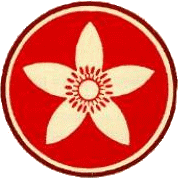
C.G. Jung Club of Orange County
31st Annual Jungian Conference
Joseph Campbell:
A Centennial Celebration of the Man, the Power of Myth and the Making of Metaphor
Presented by
Dennis Patrick Slattery, Ph.D.
Saturday, March 13, 2004
9:00 am to 5:00 pm
"Metaphor is the language of myth that remains…a widely misunderstood term. Even many so-called educated people think that 'myth' means something that is false—that is, a lie or distortion about some person or event…All of our religious ideas are metaphorical of a mystery."
Joseph Campbell
Thou Art That: Transforming Religious Metaphor
Joseph Campbell (1904-1987) is generally undisputed as the single most potent voice that reintroduced a fascination and even love of mythology into the modern and post-modern worlds. For whatever his limits, failings, or adherence to the sometimes unpopular "monomyth," nonetheless, his extraordinary range and breadth of learning has infused the modern psyche with at least a sense that we are all mythic beings, possessed of both a collective as well as personal mythos.
Who was this man? What possessed, even obsessed him, to travel the world, to read unceasingly for years at a time in a wide range of disciplines, to discern in eastern and western mythological traditions a common fabric, a weave that was more alike than different, to remain in the classroom for almost 40 years at Sarah Lawrence College, to run against the grain of a culture that seemed to have become so incarcerated by reason and rationality that it paid no homage to the mythic dimensions of the body and psyche?
Following the course of direction begun by Carl Jung, Campbell extended and deepened our understanding of the metaphorical and symbolic life of the soul and, in tandem with James Hillman, explored the deep resonances of what might accurately be called "the analogical imagination," which is poetic, mythic, spiritual and yearns for relationships.
Morning:
In two presentations, both of which encourage participation, Dr. Slattery will trace the life of the man, Joseph Campbell, primarily through the Asian and Indian journals he kept while traveling around the world for one year.
Lecture One: Joseph Campbell the Man: The Hero's Journey Toward Purpose
Lecture Two: Joseph Campbell and the Metamorphosis of Myth
There will be a few short film clips of Campbell speaking to the mythic dimension of human beings, as well as quotes from several of his most essential works.
Afternoon:
Without abandoning the theoretical components of Campbell's work, we will engage in some brief writing exercises to uncover the contours of our own personal mythology. The morning talks will inspire and stimulate our choice of an event or two in our lives that we remember having a powerful influence on who we have, and are continuing, to become.
Dennis Patrick Slattery, Ph.D., has just begun his 36th year in the classroom, teaching primarily in the Mythological Studies Program at Pacifica Graduate Institute in Carpinteria, California. He holds a BS in Literature and Psychology and an MA in Comparative Literature from Kent State University. He earned a second MA followed by a PhD in Literary Classics and Phenomenology from the Institute of Philosophic Studies, the University of Dallas.
He is the author or co-editor of eight books, including two volumes of poetry, and more than 200 articles and reviews that bring together depth psychology, mythology, poetry and cultural issues. His books include: The Idiot: Dostoevsky's Fantastic Prince, The Wounded Body: Remembering the Markings of Flesh, Depth Psychology: Meditations in the Field, Psychology at the Threshold, and Casting the Shadows (poetry). His latest books are Grace in the Desert: Awakening to the Gifts of Monastic Life, and another volume of poetry entitled Just Below the Water Line. In addition, he has co-authored a novel with Charles Asher, Simon's Crossing.
After living and teaching in Rome, Italy for two years—1976-78—he took students to Italy for five years on a Summer Study Abroad program—1989-95.